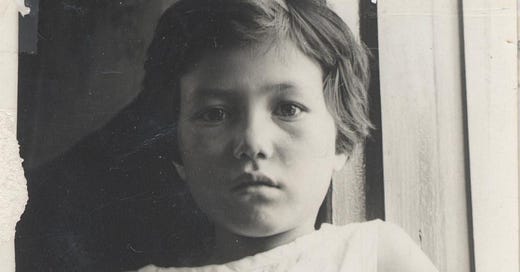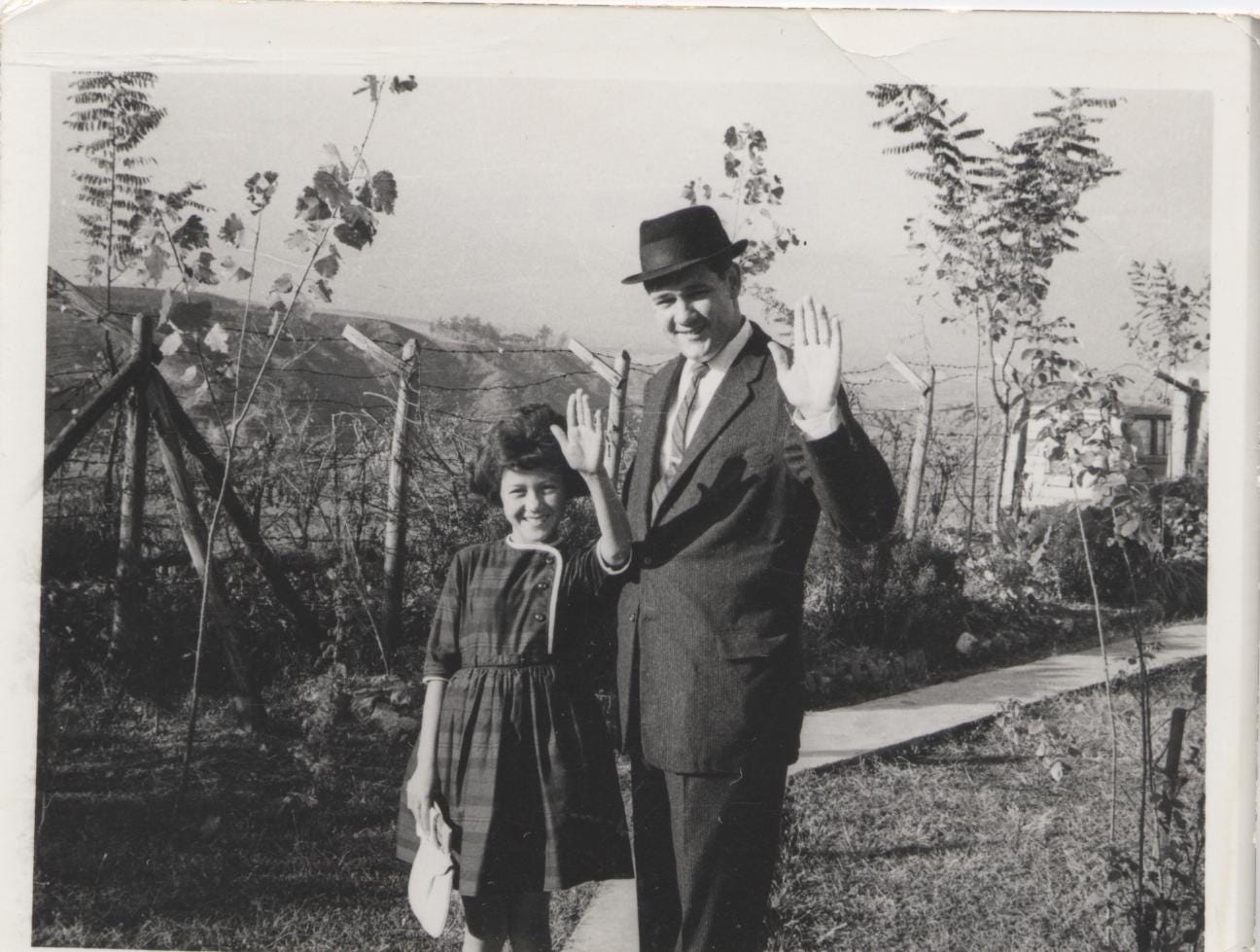The Pieces of Stephanie Fast, Part One–Seeking Hope
Words by Elaine Tomski
“Though I walk in the midst of trouble,
you preserve my life;
you stretch your hand against the anger of my foes,
with your right hand you save me.
The LORD will fulfill his purpose for me;
your love, O LORD, endures forever—
do not abandon the works of your hands.
Psalm 138:7-8 NIV
Like every child, Stephanie was born imprinted with the image of God. Perfect. Complete. The sweet baby felt secure in her momma’s arms. But too soon, her life would fall to pieces.
Near the end of the Korean War, Stephanie’s unwed mother brought disgrace to her South Korean family. Korean babies were born with black hair, but Stephanie’s was lighter. Korean babies had straight hair, but hers lay in curls. The father Stephanie had never met was an English soldier, and she looked neither fully Korean nor Caucasian. It was evident to everyone in the village who she was. Stephanie was a tougee (pronounced two-gee), a worthless, throw-away, foreign devil. The name rang in her ears and scarred Stephanie’s heart as she grew.
Stephanie and her mother lived isolated in a room off the kitchen. Her mother cried every night as the family pressured her with two choices. She could either keep Stephanie and have no life or deny her child and remain in good standing with the family by marrying a man they chose from the neighboring village. Stephanie’s mother picked her for several years.
Then, when Stephanie was four or five years old, her momma announced, “Today, we’re going on a train ride!” “I remember that day so well,” recalled Stephanie. “My mom dressed me in the best outfit she could find.” She skipped along a dirt path with momma’s hand in hers. Stephanie noticed the young poplar trees planted after the war. A gentle breeze blew as the farmers worked in rice fields. “I heard the whistle before I saw the train. Eventually, we got to the station and found the train car. My mom found a seat, and when I sat down, she looked at me and said, ‘I can’t go with you. But when you get to your destination, my brother will meet you, and he will take care of you.’”
Stephanie’s mind could not understand. Her eyes could not see her momma hidden by steam as the train pulled from the station. She leaned out the window crying, “Momma, Momma, you’ll come for me, right?”
“Don’t worry. I’ll come for you.”
“That’s the last time I saw my Momma,” said Stephanie.
When she reached her destination, Stephanie stepped off the train onto a wooden platform, where she searched each man’s face. Which one was her uncle? “I knew he would recognize me,” says Stephanie, “because I was a tougee.” She waited all day long. “As the station closed that evening, the train master came to me asking, ‘Tougee, why are you still here?’”
“I’m waiting for my uncle.”
“No one is coming for you. No one.”
That night, little Stephanie took shelter under an oxen cart leaning against the side wall of the station and opened a cloth bag her mother had given her. She ate the rice ball, hard-boiled egg, and pickle found inside. Laying the empty bag over her head like a blanket, Stephanie cried for her momma. She lay broken with the crushing truth: She could trust no one, not even her momma.
The next day, the lost girl decided to walk back to her village following the railroad tracks. “That seemed like the smart, logical thing to do.” Her plan lasted a day, then a week, and eventually, Stephanie lost the rails. “I found myself in the hillsides and villages of South Korea, trying to find my way home.” Stephanie survived long, brutal winters without adequate shelter or clothing for the next two years. She endured the angry, bitter people who tried to rid their villages of a pesky, worthless tougee. Villagers and farmers grew tired of thieves—even little girls who needed to fill their empty tummies.
A small girl could never understand why people wanted to discard her, but Stephanie lived it. One memory took her to a group of farmers who dragged her to an abandoned well at the edge of their village and threw her in. Can you see the girl as she drops to the bottom? Can you hear the splash and the thrashing of arms and legs? Can you imagine her crying out only to listen to the echo of her voice? Stephanie can still close her eyes and see the horror. Thinking she would die—and not wanting to die, Stephanie gasped until she discovered a slippery rock. With all of her might, she climbed up and waited. All day long Stephanie waited. Finally, near dusk, she heard a voice. “Little girl, are you down there?” Stephanie cried for help, then listened to the bong-bong of a metal bucket making its way down until it hit her body in the darkness.
“Can you crawl into the bucket?” asked the voice.
When the freezing, wet girl came to the top, she could see that her rescuer was a hunched-over grandma. Stephanie says, “She grabbed me as tight as she could and ran with me through the village to the edge of town where there was a dry, warm oxen stall. She covered me with straw and said these words. ‘People have no idea who you are, but it’s very important, little girl. Listen to me. You must live!’”
A few months later, a group of farmers caught the tougee stealing to fill her tummy again. They grabbed the fearful girl and marched her to a water wheel across the village. The men placed her face up, binding her hands above and feet below her before releasing the wheel. “I remember my face as it went under the water and as it came up, sputtering whatever was in my mouth–a second time, a third time, until I could taste blood.” The crushed stones marred Stephanie’s face until her eyes began to swell shut. “I knew I was going to die. Then all of a sudden, the wheel stopped.” She heard a kind voice say, “Girl, don’t fight me.” This farmer untied Stephanie and placed her gently on the ground. He used a soft cloth to wipe the blood and grit from her face. Then he spoke words to Stephanie, much like the old grandma had. “Little girl, these people don’t know you, but it’s so important. You must live!”
When Stephanie was seven or eight, she wandered into a large city. Stephanie saw bicycles, oxen carts, buses, and people everywhere for the first time! Around every corner, the city felt foreign to her, so Stephanie decided to find her way out. From the crowd, a teenage boy shouted, “Hey, tougee. Are you new here? Do you need a place to stay? Come with us.” From the time Stephanie boarded the train until that day, no one had invited her to join their group. So, she followed the boy to the banks of the river, where she discovered a whole village of street children. They lived in makeshift shelters created out of other people’s trash, but Stephanie found a place to belong. Each night, the children told stories around the campfire. They placed their feet close to the flames as they slept so the rats couldn’t nibble their toes. The common bond these children held was their brokenness. Eventually, the older boys began to abuse Stephanie sexually. She says, “I knew it was not right. I knew it hurt. But I wondered, is this something I must contribute to belong to the family?” She had been hoping for a place to belong since her mom placed her on that train. “I belonged, didn’t I?”
Stephanie knew the answer one morning as she woke to an empty camp. Everyone was gone. No one wanted to be near the girl with cholera. Stephanie didn’t realize a cholera epidemic swept South Korea, yet she was sick. She tried to make her way back to the countryside. While wandering through the alleyways, she found an ill and abandoned younger girl. Stephanie placed the girl on her back and walked to the market to sneak food for their aching tummies. Some farmers recognized her and shouted, “It’s that tougee. We’ve got to get rid of her.” This time farmers left the two girls in a bombed-out building near the edge of town. The little girls were sick, starving, and dying, and grown men treated them worse than dogs. “That’s the last thing I remember,” said Stephanie. “I passed out.”
When Stephanie opened her eyes, she didn’t notice she was lying on the village garbage heap. All Stephanie saw were the most beautiful eyes staring back at her. Could this blonde-haired, blue-eyed woman be an angel? The Swedish nurse, who came to South Korea to rescue abandoned babies, bring them back to health, and place them in an orphanage for adoption, was indeed the angel Stephanie needed. Stephanie lay dying. She was not a baby. There was no room for her at the clinic. So the nurse turned to walk away, but God stopped her feet. Frozen, she heard a clear voice speak aloud, “She is Mine.”
“In that garbage moment of my life,” says Stephanie. “He loved me the most.”
Her blonde-haired, blue-eyed angel nursed Stephanie back to life and took her to a World Vision Orphanage when she was healthy enough. As the oldest orphan, she had work to do. Stephanie says, “My job was to wake at the crack of dawn, gather all the dirty diapers, walk down to the river with the load on my back, get them as clean as I could, carry the wet diapers back to the orphanage courtyard, and hang them out to dry—all before the first meal of the day.” She ate corn mush and greens three times a day. Because she knew street life, Stephanie welcomed three meals daily, clothes on her back, and a warm place to sleep with no abuse. “And,” she said, “there was laughter.”
As Stephanie looks back at her early years, she wonders how a little girl could go day in and day out without food in her tummy. Who sent the grandma to rescue her from the well and the kind man to untie her from the water wheel? Who brought a nurse to heal Stephanie’s sickness and restore her hope? “I look back on my childhood and say, how, except for God? He was there all the time.”
Next month, discover how Stephanie meets Goliath of the Bible, a giant of her own, and the amazing ways God continues to craft the pieces of Stephanie back together again.





